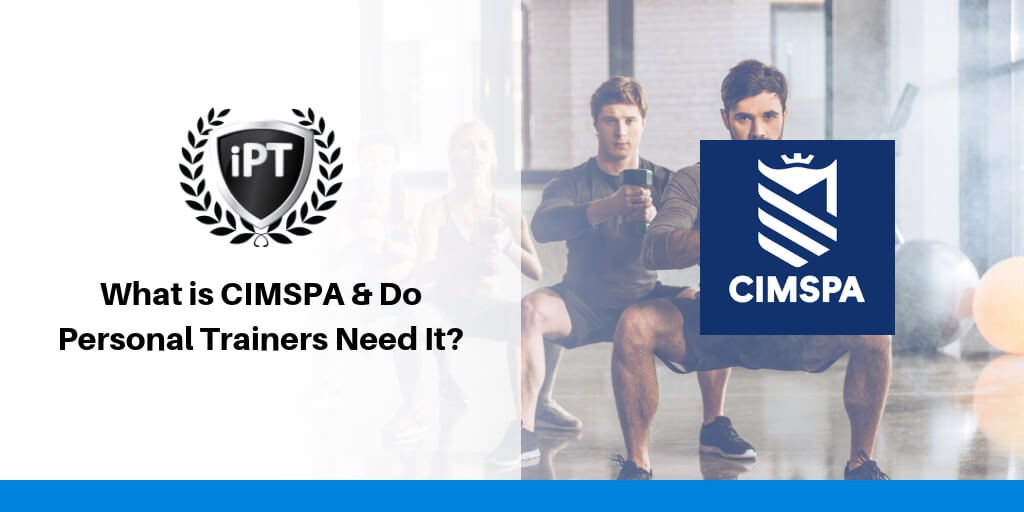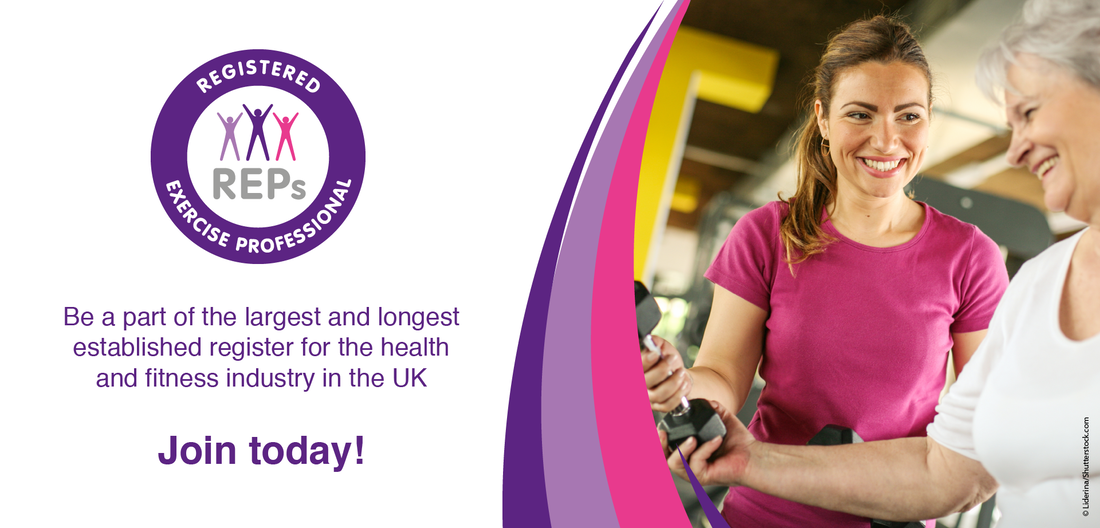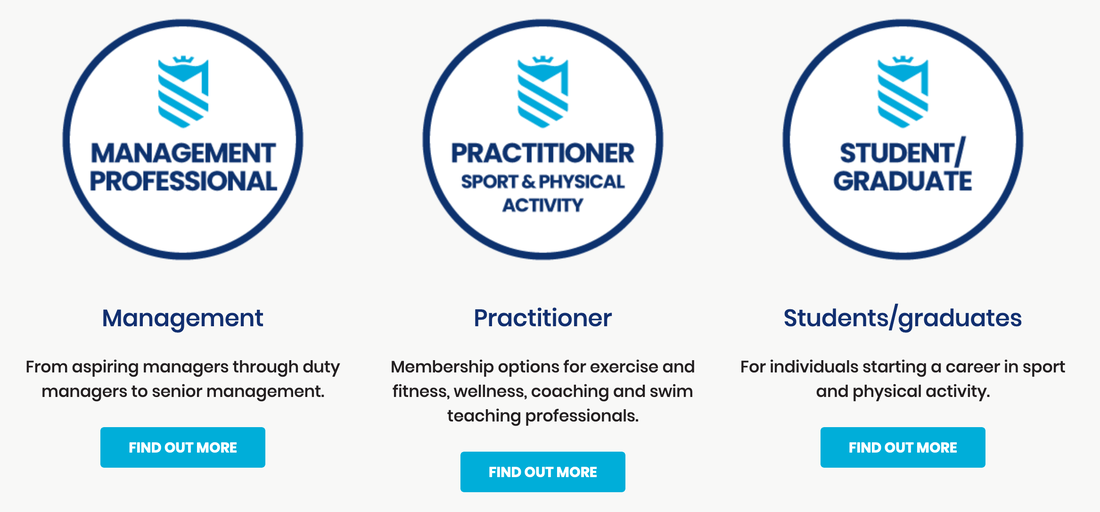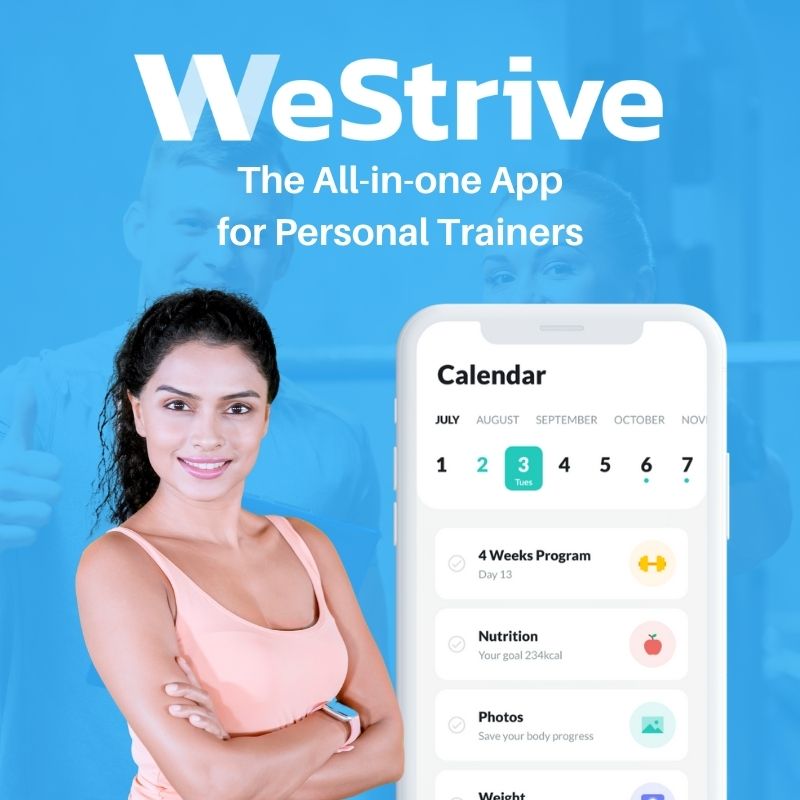|
FREE GUIDE: HOW TO LAUNCH AN ONLINE PERSONAL TRAINING BUSINESS
IN JUST 7 DAYS
✓ The new, better way of launching an online business
✓ The fastest way to create in irresistible offer ✓ A simple system to sell to clients who are interested |
|
The Chartered Institute for the Management of Sport and Physical Activity, or as it's more affectionately know CIMSPA, is the latest and greatest in governing bodies for the fitness industry. Or is it? In this article, we'll be taking a look at what CIMSPA actually does, because let's face it, who actually knows, how they compare to other governing bodies, what they do and whether or not a personal trainer needs to sign up to be a member. Let's get to it. What is CIMSPA? CIMSPA is a professional, UK-based development body which enables fitness professionals to succeed in the sports and physical activity sector. The primary driving ethos behind CIMPSA is to help to develop professional sporting talent to help not only professionals and organisations, but the UK public as a whole. The organisation wants to help foster higher levels of activity among the general public through its work of ensuring high standards of practice. CIMSPA VS. REPS Wow, so many acronyms. Let's start with what we know... REP's stands for the Register of Exercise Professionals and is the more popular governing body for personal trainers in the UK. It is a register for thousands of fitness and sports professionals throughout the UK. Founded in 2002, the REPs register lists more than 20,000 people and includes both instructors, trainers and sports coaches. All those on the register must have met industry training standards. REP's claims that professionals who join REP's are at a distinct advantage in the job market. By joining the register, they prove that they have met industry training standards and are qualified to deliver services to clients but this is often. Something most trainers claim to be BS (another acronym for you) because no clients has literally ever asked whether their personal trainer is REP's registered. REP's also helps people in the fitness industry find new employment opportunities. The register provides a way for fitness and sports professionals to prove their credentials and find work in a variety of settings. The register also protects members with accident insurance and provides free tax services to help self-employed trainers complete tax returns. Now onto CIMSPA... CIMSPA provides many of the same services is REPS but has some advantages over the older industry body. Tara Dillon, the CEO of CIMPSA, says that fitness professionals should join CIMPSA above REPs because the largest employers in the sector support the organisation’s vision. That's Tara... Gym bosses and other senior people in the fitness industry want to promote the same agenda as CIMPSA - namely, helping the British public become more active. Furthermore, many industry leaders see CIMSPA as a more reliable source for quality professionals. REPs standards vary considerably. Dillon says that confidence is another issue with REPS. Clients want to know that the people training them are fully endorsed by an accredited body which checks their credentials. CIMSPA provides assurance and gives professionals in the industry a stamp of approval. Finally, CIMSPA is the fitness sector’s only chartered professional body. Professionals listed on REPs have the backing of an official agency, but they cannot achieve chartered status. What's Chartered Status you say? I don't know. I read something about excelling standards and embodying their sector values but there was no real talk about how one might achieve that other than by becoming a member. Hmmmm. Here. Maybe you can figure it out... CIMSPA VS. The Insitute of Personal Trainers I've been asked several times whether the Institute of Personal Trainers is a governing body because of our code of ethical conduct. We're not. The code of conduct is provided as a general guideline for how both the trainer and client should behave in a way that ensures expectations are managed and met. The Institute of Personal Trainers is for personal trainers who want to build their own businesses and we provide: Also, it's competely free to become a member and start learning. What Does CIMSPA Actually Do? CIMSPA has two long term strategic priorities. The first is to provide opportunities for young professionals in the fitness and sports industry to succeed. The second (and highly related) objective is to provide practical support for helping individuals to develop and manage their careers. CIMSPA, therefore, is primarily responsible for setting industry training and qualification standards. It falls to the CIMSPA core team to determine whether a particular programme meets the organisation’s requirements or not. CIMSPA is also responsible for setting the standards for professionals to become chartered in the fitness industry. As the governing body, it determines what personal trainers and other fitness professionals need to do to achieve chartered status. The organisation also holds an annual conference. The purpose of the meeting is to bring the members together and share news about best practices. It’s also an opportunity for debate and for moving towards better outcomes. Do we need these things in the fitness industry? I think so, but I'm not sure this is the best way to go about it. Maybe their membership is worth it though... What Are The Benefits of Being a CIMSPA Member? Ready for this? Because it's a bit complicated. Practically any professional involved with fitness, sports, or physical activity can apply to become a member of CIMSPA. This includes:
CIMSPA splits the people who can benefit from membership up into three groups. The first group is students and those recently graduated. CIMSPA aims to provide services to help these people get their careers off the ground and assist them with finding professional work in the industry. For students studying sports and physical activity-related subjects, CIMPSA provides a variety of benefits, which include:
The second group is frontline professionals - people who already actively work in the fitness industry. The benefits for practitioners are considerable.
The third group of people CIMSPA benefits are those looking for senior and managerial roles in the fitness sector. It's more expensive but I couldn't tell what you get for the extra membership fees. CIMSPA Membership Requirements for Personal Trainers? If you want to join CIMSPA as a personal trainer, there are a variety of requirements that you must fulfil. CIMSPA bases these requirements on its internal professional standards. To become a member as a personal trainer, you need to hold a recognised personal trainer qualification. You must also prove that you have engaged in continuing professional development if you gained your qualification more than five years ago. CIMSPA wants you to demonstrate that you have maintained your skills and knowledge. You can find a list of CIMPSA-recognised qualifications here. If you want to become A CIMSPA practitioner, then you must hold at least a recognised level 3 qualification or above. You must have qualified in the last five years. You can become a CIMSPA affiliate with a recognised level 2 qualification. Again, you must have acquired this qualification within the last five years. Do Personal Trainers Need CIMSPA Membership?Personal trainers do not need CIMSPA membership to work in the fitness sector in the sense that it is not a legal requirement. However, for those who want to make the most of their careers, membership might be an option for you.
CIMSPA has explicit backing from the government and is the leader for workforce development in the sector. CIMSPA is also supported by many of the leading employers in the fitness sector, including Places for People Leisure, Fusion Lifestyles and Nuffield Health, with new endorsements for the organisation every year. Basically, if you want to get some experience in any of these organisations before going it alone and starting your own personal training business, you might want to consider CIMSPA membership. Here's why... Many organisations now back CIMSPA because of their frustration with the unpredictable quality of fitness professionals on the Register of Exercise Professionals. CIMSPA is seen as more reliable, with employers more interested in candidates on CIMSPA than REPs. By becoming a member, a personal trainer can be entered onto the register and achieve a higher professional status with potential future employers. Furthermore, for some trainers, without CIMSPA membership, there isn’t a great deal of incentive to keep your skills current. Personal trainers can benefit enormously, however, and use CIMSPA CPD to pursue their career ambitions. CIMSPA provides support all the way from graduates entering the job market to people who want advanced management roles. |
Our All In One Platform
Check out out all in one business & marketing platform for personal trainers!
WEBSITE BUILDER | FUNNELS |MEMBERSHIPS | SCHEDULING| EMAIL MARKETING| PAYMENTS| CRM | AI ASSISTANT | SURVEYS
Popular Articles
Trusted Partners
We work closely with some of the best service providers in the fitness industry.
Categories
All
|










